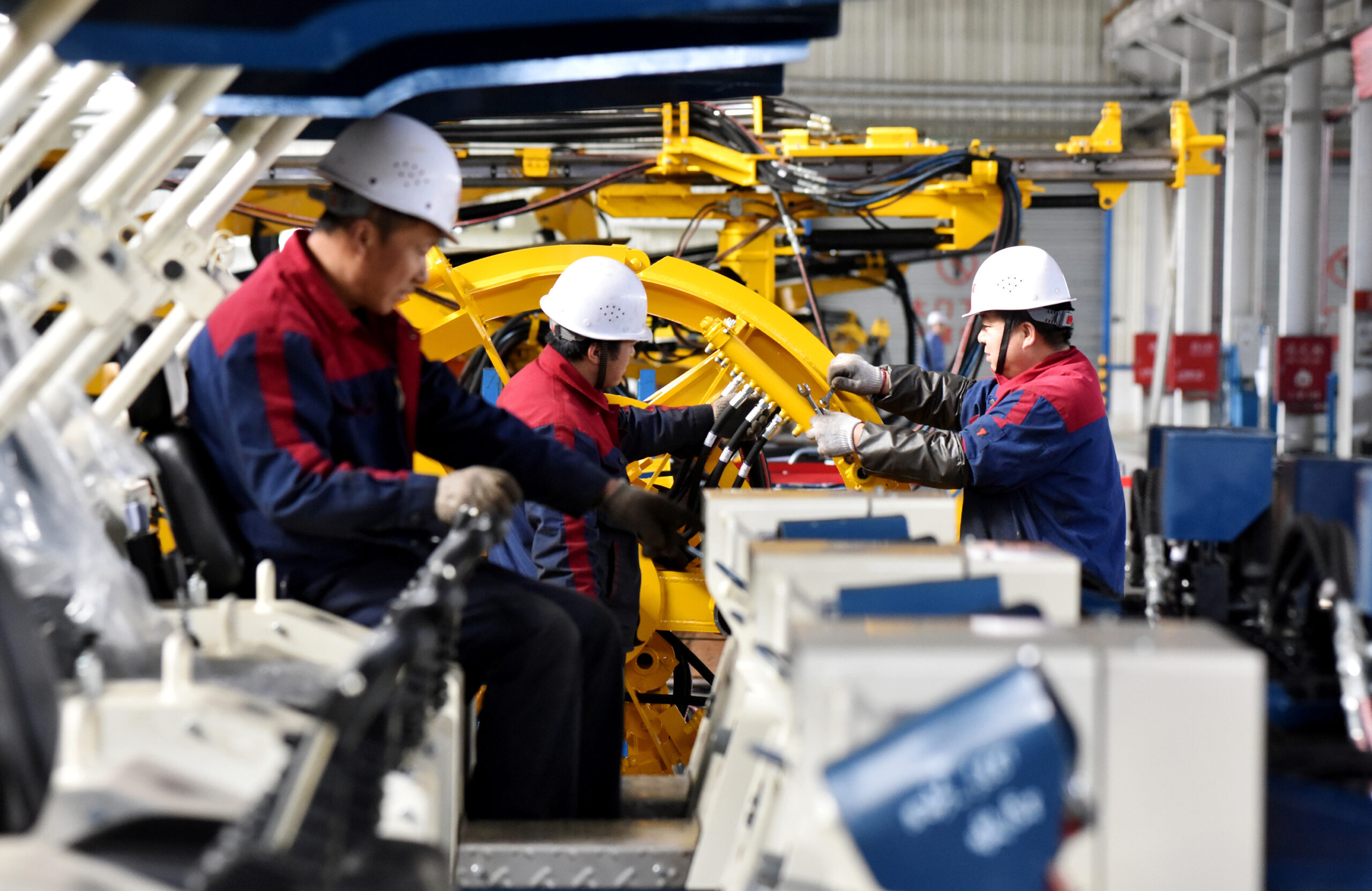WASHINGTON/LONDON – Manufacturers across the United States, Europe, and Asia turned in a weak performance last month as factories grappled with tepid demand, surveys showed on Thursday, raising the risk of an underpowered global economic recovery.
A measure of U.S. manufacturing activity dropped to an eight-month low in July amid a slump in new orders, echoing a broad-based downturn in the eurozone while a slump in China’s manufacturing activity suppressed its Asian neighbors.
British factories, meanwhile, bucked the trend and recorded their best month for two years, with output and hiring rising.
The Institute for Supply Management’s U.S. manufacturing Purchasing Managers’ Index (PMI) dropped to 46.8 last month, the lowest reading since November, from 48.5 in June. A PMI reading below 50 indicates contraction in the manufacturing sector, which accounts for 10.3% of the world’s largest economy.
Despite declining for a fourth straight month, the PMI remained above the 42.5 level that the ISM said over time generally indicates an expansion of the overall economy. So-called hard data from the government and Federal Reserve suggests the industry has stabilized, with production at factories having rebounded sharply in the second quarter.
HCOB’s final euro zone manufacturing PMI, compiled by S&P Global, held at June’s 45.8 in July. It has been below the 50 mark separating growth from contraction for over two years.
An index measuring output, which feeds into a composite PMI due on Monday that is seen as a good gauge of economic health, dropped to a seven-month low of 45.6.
“The turn in the manufacturing inventory cycle has yet to materialize in a context of weak global demand, leaving the eurozone short of a clear growth driver as services are slowing,” said Leo Barincou at Oxford Economics.
The downturn in Germany’s manufacturing sector, which accounts for about a fifth of Europe’s biggest economy, accelerated while in France the industry contracted at its fastest rate in six months.
In Britain, however, the index rose to 52.1, its highest reading since July 2022, as optimism builds after Prime Minister Keir Starmer’s landslide election victory. The Bank of England cut interest rates by a quarter percentage point to 5% on Thursday after holding them at a 16-year high for the past year.
The Fed on Wednesday also flagged a possible start to interest rate cuts as soon as September if the U.S. economy follows its expected path.
Having trimmed its deposit rate in June, the European Central Bank could follow up with two more cuts this year, a Reuters poll predicted.
ASIAN STRAIN
Manufacturing activity shrank in Japan and expanded at a slower pace in South Korea due partly to soft domestic demand and rising input costs, adding to the gloom from a contraction in China’s factory activity.
China’s Caixin/S&P Global manufacturing PMI sank to 49.8 in July from 51.8 the previous month, the lowest reading since October last year and missing analysts’ forecasts of 51.5.
The reading, which mostly covers smaller, export-oriented firms, was in line with an official PMI survey on Wednesday showing manufacturing activity slipped to a five-month low.
“Looking ahead, we expect a period of below-trend global growth to weigh on manufacturing activity across Asia for the rest of this year,” said Shivaan Tandon, markets economist at Capital Economics.
Japan’s final au Jibun Bank Japan manufacturing PMI fell to 49.1 in July from 50.0.
Moving in the opposite direction to most other central banks, the Bank of Japan raised interest rates to levels unseen in 15 years on Wednesday and unveiled a detailed plan to slow its massive bond buying.
South Korea, another key regional export engine, fared better with the PMI standing at 51.4 in July, above the 50-mark for a third month but slowing from June’s 26-month high of 52.0.
China poses a potential hurdle for business expansion in the region and while South Korea’s July exports rose at the fastest pace in six months, helped by strong chip sales, they missed market expectations.
Elsewhere, factory activity expanded in Taiwan but also slowed slightly from June while India’s manufacturing activity expanded at a solid pace thanks to continued robust demand.
(Source: ReutersReuters)
Kevin Putnam is a financial journalist and editor based in New York. He specializes in editing news and analysis related to U.S. stock market. Read Full Bio










